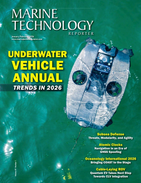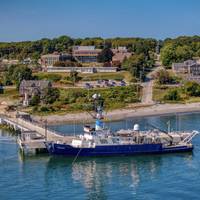
Retiring the R/V Endeavor: Celebrating a Lifetime of Accomplishments and Memories
a close. Rhonda Moniz, host of the DEEP DIVE podcast, sat down with Endeavor's Port Captain Brendan Thornton and Scientific Service Manager Erich Gruebel to celebrate the vessel's accomplishments and talk about what's next.Built and rebuilt to serveEndeavor joined URI's Graduate School of Oceanography (GSO) in 1976 as one of the first purpose-built research vessels in the University-National Oceanographic Laboratory System (UNOLS) fleet. She succeeded URI's previous research vessel, Trident, which was a converted 1945-era Army freighter. Endeavor served on various environmental studies
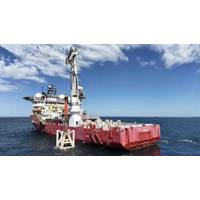
Artificial Reef Installation Completed by Fugro Offshore Australia
Fugro has successfully installed an artificial reef off the coast of Dampier, Western Australia, on behalf of Woodside Energy and Recfishwest, creating a new habitat to support local fish species and enhance recreational fishing opportunities for the community.The project involved the deployment of 48 concrete reef modules which were installed on the seabed from Fugro’s multipurpose vessel, the Fugro Etive. The reef structure spans approximately 16,000 m² and is designed to promote marine biodiversity. Over time, the concrete modules will attract marine growth and a variety of fish species
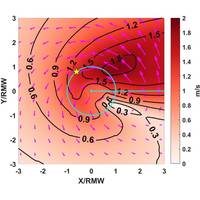
URI Computer Simulations Show How Strong Ocean Currents Reduce Size of Surface Waves
Using advanced computer simulations, researchers from the University of Rhode Island’s Graduate School of Oceanography (GSO) have concluded how and why strong ocean currents modify surface waves.“Our primary finding is that hurricane-generated ocean currents can substantially reduce both the height and the dominant period of hurricane waves,” said Isaac Ginis, URI professor of oceanography. “The magnitude of wave reduction depends strongly on how accurately ocean currents are predicted. This highlights the importance of using fully coupled wave-ocean models when forecasting
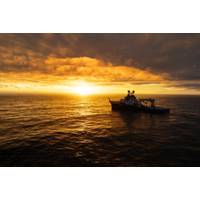
Argentina’s Deep Sea Is More Biodiverse Than Scientists Thought
On an Argentinian-led science expedition aboard Schmidt Ocean Institute’s R/V Falkor (too), a science team observed stunning biodiversity along the country’s continental shelf. Traveling along the entire length of the coastline, from Buenos Aires in the north to an area offshore from Tierra del Fuego, the team documented the largest known Bathelia candida coral reef in the global ocean, several other rich reef complexes, and 28 suspected new species, including worms, corals, sea urchins, sea snails, and sea anemones.Deep-sea corals are slow-growing and long-lived. They are often classified
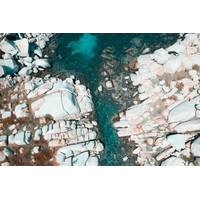
New Study Reveals How Greenland’s Seaweed Stores Carbon in the Deep Ocean
An interdisciplinary study confirms, for the first time, the oceanographic pathways that transport floating macroalgae from the coastal waters of Southwest Greenland to deep-sea carbon reservoirs, potentially playing a previously underappreciated role in global carbon storage. Macroalgae, or seaweeds (including kelp), are highly productive coastal habitats capable of absorbing significant quantities of atmospheric carbon (CO₂). Previous studies have estimated that globally, 4–44 teragrams (1Tg = one million metric tons) per year of macroalgal-derived carbon may reach depths of 200m, where

Deep Ocean Landers Help Scientists Explore Dark Oxygen Mystery
Two world-first landers that can withstand 1,200 times the pressure on earth’s surface will help answer one of the ocean’s deepest mysteries – where does Dark Oxygen come from?Professor Andrew Sweetman of the Scottish Association for Marine Science (SAMS) made waves in 2024 when his team discovered metallic nodules in the deep sea appeared to be producing oxygen. These nodules, which contain highly sought-after metals, could clarify how animal life is distributed thousands of meters beneath the waves, where sunlight cannot penetrate, calling into question the prevailing scientific
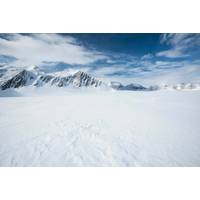
New Map Reveals Terrain Below Antarctic Ice Sheet
."Having the most accurate map of Antarctica's bed shape is crucial, because the shape of the bed is an important control on friction acting against ice flow, which in turn we need to include in numerical models that are used to project how rapidly Antarctica's ice will flow towards the ocean, melt and contribute to global sea-level rise," said glaciologist Robert Bingham of the University of Edinburgh in Scotland, who helped lead the study published this week in the journal Science.The researchers were able to map the subglacial terrain with unprecedented precision. For instance
![Microplastic beads seen in the central tube of a copepod [their intestinal tract], as evidenced here, fluorescently labelled beads help with visualization and identification. © PML](https://images.marinetechnologynews.com/images/maritime/w200h200padcanvas/microplastic-beads-seen-166795.jpeg)
Study Records Zooplankton Transporting Microplastics to the Deep Sea
A new study has, for the first time, recorded and measured how fast microplastics move through the gut passage of a key zooplankton species in real time and used those measurements to estimate how much plastic these tiny animals might be transporting—and sinking down—through the ocean each day.Zooplankton are already emerging as a major biological pathway for microplastics to transport through marine ecosystems. With over 125 trillion microplastic particles estimated to have accumulated in the ocean, understanding how these pollutants are moving through marine ecosystems and food webs is

Schmidt Ocean Institute Advances R/V Falkor (too)’s Mapping Capabilities
Schmidt Ocean Institute announced it has mapped two million square kilometers of seafloor — about the size of Greenland — and this year, has made two significant changes to advance the seafloor mapping capabilities of R/V Falkor (too): it changed the shape of the ship’s bow and added an Autonomous Underwater Vehicle (AUV) to its technology suite.Over a two-month dry dock period (April 28–June 28) in Talcahuano, Chile, the team reconstructed the bow of R/V Falkor (too), transforming it from a bulbous bow more common on offshore commercial vessels into a streamlined, V-shaped bow

 February 2026
February 2026


